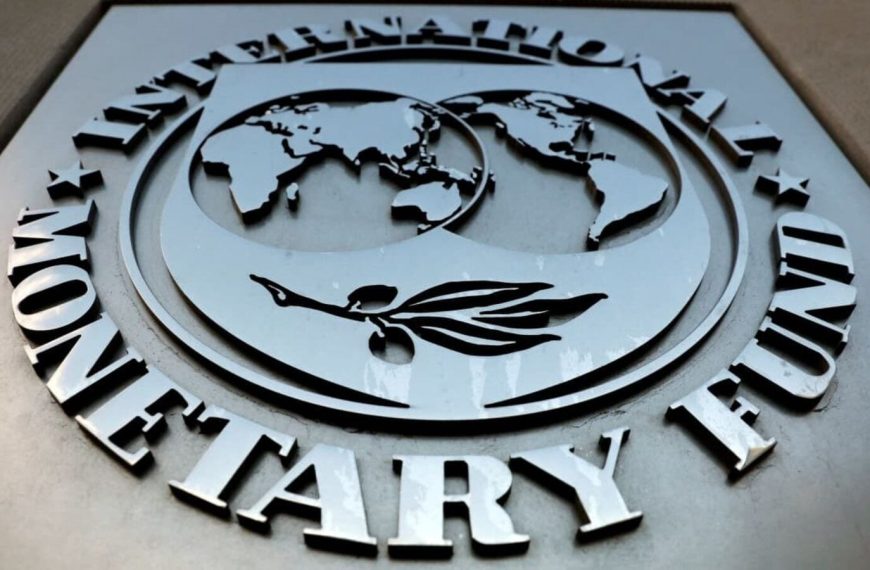In a significant shift for the global economy, the International Monetary Fund (IMF) is poised to revise its growth forecast downward in a report set for release on Tuesday. This adjustment comes just as purchasing manager indexes from Japan, Europe, and the United States are about to reveal the first comprehensive insights into manufacturing and service sectors affected by Trump’s global tariffs that were initiated on April 2. With key business surveys scheduled, finance ministers and central bankers gathering in Washington will have a crucial opportunity to assess the early impacts of these trade policies.
IMF’s Economic Outlook
IMF Managing Director Kristalina Georgieva hinted at notable downward adjustments in growth projections but reassured that a recession is not anticipated. She stated, "Our updated growth forecasts will reflect significant markdowns, yet we are not expecting a recession. However, we will need to raise inflation forecasts for several nations." Georgieva emphasized the persistent uncertainty surrounding the global economy, warning of potential stress in financial markets.
- Key Points from Georgieva:
- Growth projections will be lowered, but not to recession levels.
- Inflation forecasts are likely to see upward adjustments for some countries.
- High levels of uncertainty could lead to increased financial market risks.
Signals from Major Economies
As uncertainty looms over global markets, Federal Reserve Chair Jerome Powell indicated on Wednesday that the US central bank is prepared to exercise patience regarding monetary policy adjustments. Meanwhile, European Central Bank President Christine Lagarde expressed uncertainty about whether the current volatility has reached its peak.
Georgieva expressed hope that the upcoming meetings in Washington, including discussions among Group of 20 finance leaders, might alleviate tensions in international trade relations. "We need to foster a more resilient global economy rather than drift towards division," she noted.
Economic Indicators to Watch
In the United States, investors are keenly awaiting revised data from the University of Michigan regarding consumer sentiment and inflation expectations, which will be released on Friday. The potential effects of tariffs on economic stability and inflation have been highlighted by survey participants in recent months.
- Upcoming Highlights:
- The Fed’s Beige Book will provide insights into regional economic conditions.
- A report on new home sales is anticipated to show a slight increase, as builders offer incentives due to high mortgage rates.
- Durable goods orders data will be released to gauge business demand for equipment.
Canadian and Global Perspectives
In Canada, the election campaign is nearing its conclusion, with Prime Minister Mark Carney’s Liberal party reportedly leading in polls. Trade negotiator Steve Verheul, a key player in Canada’s response to US tariffs, is expected to address a conference in Toronto. Retail data will shed light on consumer spending trends as the nation navigates trade uncertainties.
Asia’s Economic Updates
In Asia, the week begins with China expected to announce stable loan prime rates. The recent data has shown growth exceeding forecasts, indicating resilience amid global trade tensions. Indonesia will release March trade figures, offering insights into the country’s economic health before the imposition of tariffs.
- Key Releases in Asia:
- Preliminary PMI data from Australia, Japan, and India will be scrutinized for impacts from the US-led trade war.
- South Korea’s advance estimates for first-quarter GDP will also be closely monitored.
European Economic Developments
In Europe, as many central bankers gather for IMF meetings, attention will be on several key surveys. The Eurozone is set to release consumer confidence data, while the ECB will publish its professional forecasters’ survey and wage tracker, which may indicate slowing pay growth.
- Noteworthy Reports:
- Germany’s Ifo survey of business confidence will assess company sentiment amid ongoing trade tensions.
- The UK will also release its PMI reports, providing a snapshot of economic conditions.
Latin America’s Economic Landscape
In Latin America, Argentina is set to report February GDP-proxy data following a substantial agreement with the IMF. The country’s economy, which contracted for two consecutive years, is now expected to lead growth among major South American economies.
- Key Insights:
- Colombia will release February economic activity data, while Mexico faces potential contractions following negative GDP prints.
- Brazil and Paraguay will also report inflation data, impacting future monetary policy decisions.
As global economies grapple with the ramifications of trade policies and shifting forecasts, all eyes will be on how these developments unfold in the coming weeks.











